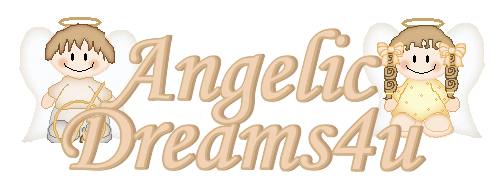A rich man understands that the cobbler was much wiser in his life while the rich man has just spent half of his life running after money.  The Cobbler and His Guestby Anne MuCollum Boyles
Long ago there lived in the city of Marseilles an old shoemaker, loved and honored by all his neighbors, who affectionately called him “Father Martin.”
One Christmas Eve he sat alone in his little shop, reading of the visit of the wise men to the infant Jesus, and of the gifts they brought. He said to himself, “If tomorrow were the first Christmas, and if Jesus were to be born in Marseilles this night, I know what I would give Him!” He arose and took from a shelf two little shoes of softest snow-white leather, with bright silver buckles, “I would give Him these, my finest work. How pleased His mother would be! But I’m a foolish old man,” he thought, smiling. “The Master has no need for my poor gifts.” Replacing the shoes, he blew out the candle, and retired to rest. Hardly had he closed his eyes, it seemed, when he heard a voice call his name, “Martin!” Intuitively, he felt aware of the identity of the speaker. “Martin, you have longed to see Me. Tomorrow I shall pass by your window. If you see Me and bid Me enter, I shall be your guest and sit at your table.” He did not sleep that night for joy. Before it was yet dawn he arose and tidied up his little shop. He spread fresh sand on the floor, and wreathed green bows of fir along the rafters. On the table he placed a loaf of white bread, a jar of honey, and a pitcher of milk; and over the fire he hung a hot drink. His simple preparations were complete. When all was in readiness, he took up his vigil at the window. He was sure he would know the Master. As he watched the driving sleet and rain in the cold, deserted street, he thought of the joy that would be his when he sat down and broke bread with his Guest. Presently he saw an old street sweeper pass by, blowing upon his thin, gnarled hands to warm them. “Poor fellow! He must be half-frozen,” thought Martin. Opening the door, he called out to him, “Come in, my friend, and warm yourself, and drink something hot.” No further urging was needed, and the man gratefully accepted the invitation. An hour passed, and Martin next saw a poor, miserably clothed woman carrying a baby. She paused, wearily, to rest in the shelter of his doorway. Quickly he flung open the door. “Come in and warm while you rest,” he said to her. “You are not well?” he asked. “I am going to the hospital. I hope they will take me in, and my baby,” she explained. “My husband is at sea, and I am ill, without a soul to whom I can go.” “Poor child!” cried the old man. “You must eat something while you are getting warm. Let me give a cup of milk to the little one. Ah! What a bright, pretty little fellow he is! Why, you have no shoes on him!” “I have no shoes for him,” sighed the mother. “Then he shall have this lovely pair I finished yesterday.” And Martin took down the soft little snow-white shoes he had looked at the evening before, and slipped them on the child’s feet. They fit perfectly. And shortly the young mother went her way full of gratitude, and Martin went back to his post at the window. Hour after hour went by, and many needy souls shared the meager hospitality of the old cobbler, but the expected Guest did not appear. At last, when night had fallen, Father Martin retired to his cot with a heavy heart. “It was only a dream,” he sighed. “I did hope and believe, but He has not come.” Suddenly, so it seemed to his weary eyes, the room was flooded with a glorious light; and to the cobbler’s astonished vision there appeared before him, one by one, the poor street sweeper, the sick mother and her baby, and all the people whom he had aided during the day. Each one smiled at him and asked, “Have you not seen me? Did I not sit at your table?” and vanished. Then softly out of the silence he heard again the gentle Voice, repeating the old, familiar words: “Whoso shall receive one such little child in my name receiveth me.”* “For I was an hungred, and ye gave me meat: I was thirsty, and ye gave me drink: I was a stranger, and ye took me in.”* “Verily I say unto you, Inasmuch as ye have done it unto one of the least of these my brethren, ye have done it unto me.”* Moral of The Story:
|
Original Full Page Greeting - Archived
Thanks For Visiting
Copyright © 2015 - AngelicDreams4U
Copyright © 2015 - AngelicDreams4U


















